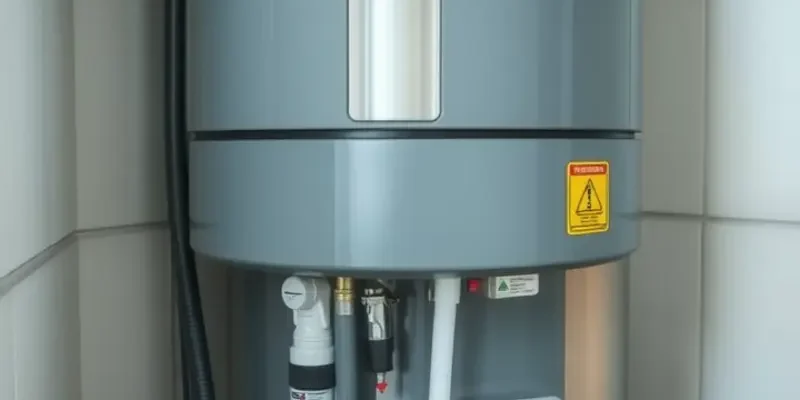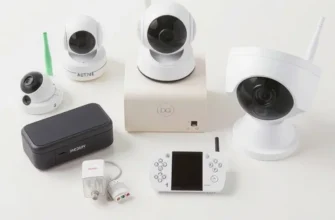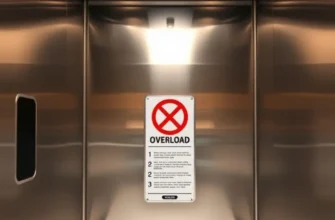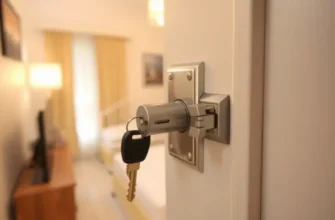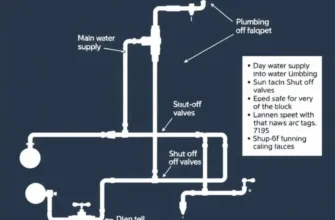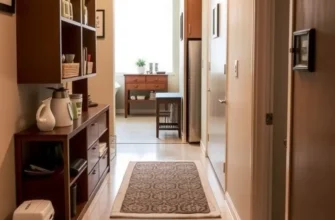When living in an apartment, understanding the nuances of safety measures, particularly regarding water heaters, is crucial for renters. Water heaters, while indispensable for our daily lives, can pose safety risks when not managed correctly. From minimizing the chances of leaks and explosions to understanding the signs of wear and tear, being informed is your first line of defense. Exploring best practices not only protects you and your belongings but also fosters a hassle-free living environment. Renters should be aware of their responsibilities towards water heater maintenance and what to do in case of malfunctions. Prioritizing safety and security can lead to a more pleasant apartment experience, allowing you to enjoy your home to the fullest. Let’s dive into practical, easy-to-follow tips aimed at ensuring your water heater is a source of comfort and not concern.
Understanding Your Water Heater
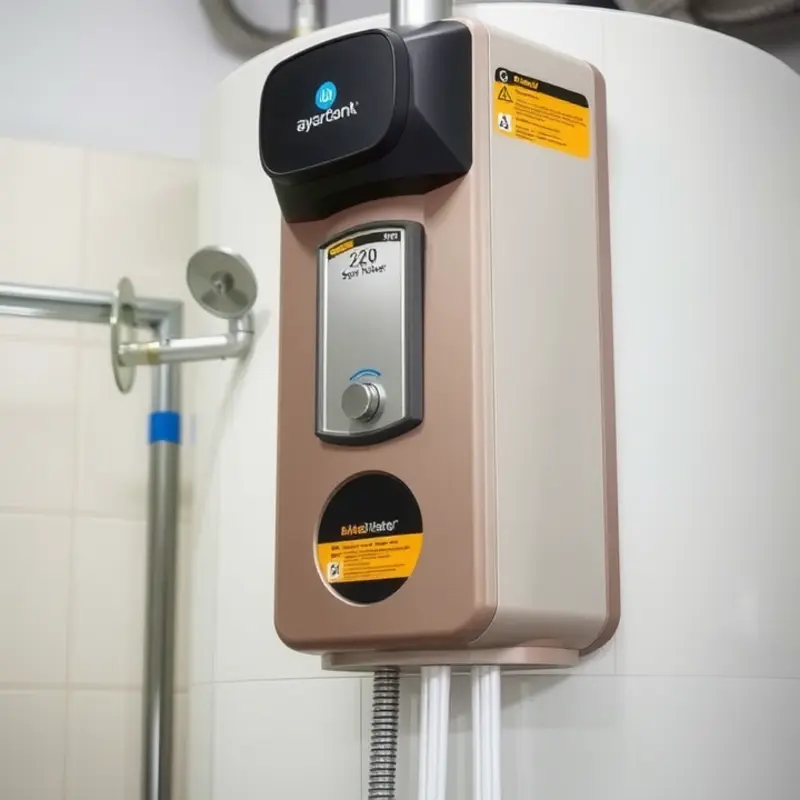
In rental apartments, water heaters are essential for providing a steady flow of hot water. Understanding the types commonly found in these spaces ensures safety and efficient use. Two primary types of water heaters in apartments are tankless and storage tank models.
Tankless water heaters heat water on demand, which can save energy. Unlike traditional models, they do not store hot water. Storage tank heaters, on the other hand, keep gallons of water hot and ready for use at all times. Recognizing the type present in your apartment is a crucial first step in monitoring its safety.
Safety Features in modern water heaters include temperature and pressure relief valves (T&P valves) and automatic shut-offs. These are designed to release pressure if it gets too high, preventing potential hazards. It is important to check these features regularly, ensuring they are in working order.
Basic Functionality: Water heaters function by using gas or electricity to heat water. In tankless systems, water is heated directly as it flows through the unit. Storage tanks use a heating element to warm water stored in a tank, which then disperses as needed. Understanding this helps in identifying when something might go wrong. For instance, an unexpected drop in water temperature could indicate a failing heating element or thermostat.
Regular maintenance is vital for efficient operation and safety. Flushing tank heaters annually helps remove sediment buildup, which can lead to inefficiencies. Ensure that any maintenance performed observes manufacturer recommendations and safety protocols. A licensed professional should handle repairs and inspections, especially with gas-powered units, to prevent leaks or carbon monoxide issues.
Potential hazards associated with malfunctioning water heaters include leaks, which can lead to water damage, or more severe threats like fires or gas explosions. Regularly inspect for any signs of corrosion, leaks, or unusual noises, taking immediate action if these are noticed. Ensuring clear access to your water heater allows for timely interventions by maintenance professionals.
Empowering yourself with knowledge about your water heater contributes directly to your peace of mind. Informed vigilance allows for the early detection of issues and maintains a safe home environment. For more comprehensive safety measures in apartment living, consider exploring additional resources, such as this guide on apartment roof safety.
Safety Practices for Renters
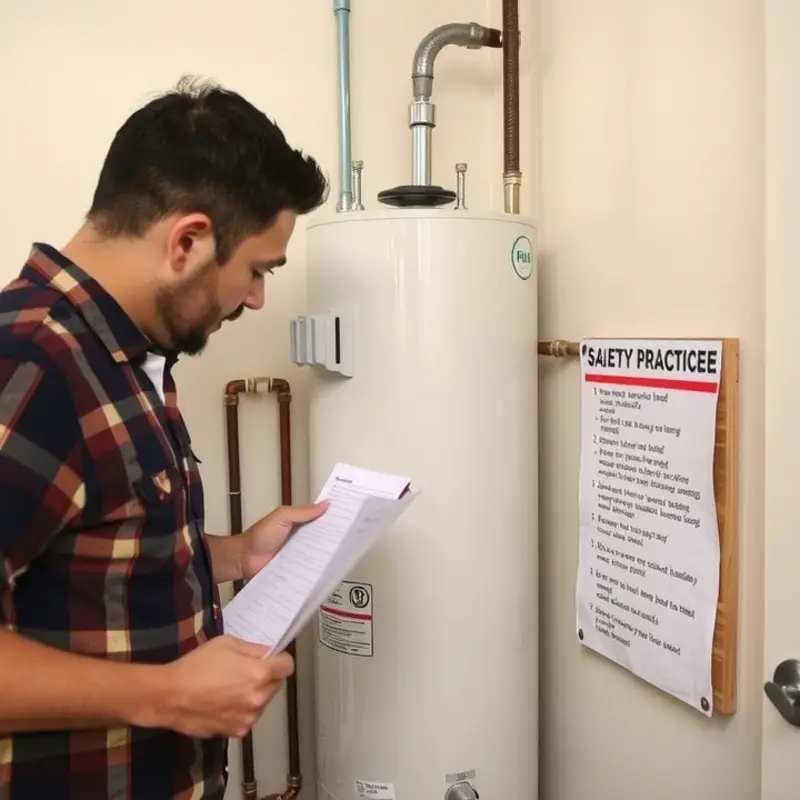
Safeguarding your apartment begins with understanding how to properly manage and maintain your water heater. While a water heater is a critical component of household comfort, improper use can pose risks. As a renter, you have a significant role in ensuring safety by adopting consistent practices and being vigilant about potential issues.
Set the Correct Temperature
One of the simplest yet most important steps is setting the water heater to the appropriate temperature.
Keeping the temperature at or below 120°F (49°C) can prevent scalding accidents, particularly in apartments with children or elderly occupants. This setting also reduces the risk of bacterial growth, such as Legionella, ensuring your water remains safe for use. Consulting with your landlord or maintenance team to set and maintain this temperature is advisable if you’re unfamiliar with the heater’s controls.
Conduct Routine Checks
Routine inspections are crucial to the safe operation of your water heater. Monthly checks can help you identify issues before they escalate. Inspect the heater for any signs of rust or corrosion, leaks, or unusual noises.
Listen for banging, popping, or hissing sounds—which can indicate sediment buildup or pressure issues inside the tank. Report these to your landlord immediately to prevent bigger problems in the future. Always ensure access to a water heater manual, typically provided by your landlord, to familiarize yourself with normal operating conditions.
Identify Warning Signs
Recognizing warning signs early can prevent hazardous situations. Pay attention to unexpected cold water, a decline in water pressure, or fluctuating temperatures. These symptoms often indicate a malfunction.
If you notice discoloration or a metallic taste in the water, it could point to a failing tank or inner lining corrosion. Moreover, a rotten egg smell might suggest bacteria within the unit, necessitating professional attention. At any sign of gas or electrical issues, vacate the premises and contact both your landlord and emergency services.
Communicate with Your Landlord
Renters should maintain open lines of communication with their landlords or management teams. If your routine checks uncover any issues, report them immediately. Request maintenance or professional inspection if any aspect seems amiss or exceeds your comfort or expertise.
Additionally, during regular maintenance checks, confirm that safety features such as pressure relief valves are functional. Establish a protocol so you can contact your landlord swiftly in case of emergencies.
Integrate with Safety Devices
To further enhance safety, consider integrating your water heater with smart home technology. Smart home devices can alert you to leaks, temperature anomalies, or usage that deviates from the norm.
For practical advice on smart home integration, refer to apartment-friendly smart home. Such measures can offer an added layer of monitoring and peace of mind, especially if you’re frequently away from home.
Water heater safety is an ongoing responsibility that relies heavily on vigilance and communication. By adopting proactive measures and fostering a good relationship with your landlord, you can significantly minimize risks and ensure the consistent and safe operation of your apartment’s water heater.
Final words
Maintaining a safe and functional water heater is essential for renters looking to foster a secure living environment. Understanding your unit’s mechanics, recognizing potential hazards, and adhering to safety practices can significantly reduce risks related to water heaters. By prioritizing the tips outlined in this guide, you can enjoy peace of mind in your apartment, knowing that you are taking the right steps toward ensuring your safety. Don’t hesitate to reach out for professional assistance whenever necessary, and remember: a proactive approach to maintenance will keep your water heater a reliable source of comfort in your home.

